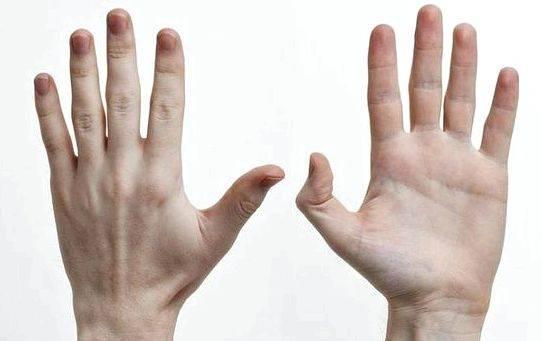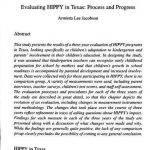While most people prefer to use their right hand to brush their teeth, throw a ball, or hold a tennis racket, left-handers prefer to use their left hand. This is the case for around 10% of all people. There was a time (not so long ago) when left-handers were stigmatized (see Glossary) in Western (and other) communities: it was considered a bad sign if you were left-handed, and left-handed children were often forced to write with their right hand. This is nonsensical: there is nothing wrong with being left-handed, and trying to write with the non-preferred hand is frustrating for almost everybody. As a matter of fact, science can learn from left-handers, and in this paper, we discuss how this may be the case. We review why some people are left-handed and others are not, how left-handers’ brains differ from right-handers’, and why scientists study left-handedness in the first place.
Why are You Left-Handed?
Despite many years of research, the reason why one person turns out to be a left-hander and another does not remains a mystery. Handedness is partly heritable (see Glossary): left-handed parents tend to have more left-handed children than right-handed parents do. Studies that compared identical twins to fraternal twins (see Glossary) show that the heritability is around 25% [1 ], which suggests a genetic contribution to hand preference. Note, however, that if handedness is only 25% heritable, then the majority of the factors contributing to left-handedness is not straightforwardly genetic. A much debated influence is the level of the hormone testosterone in utero (in the womb) while an unborn child (fetus ) is developing. Another possibility is that handedness is influenced by random (“chance”) processes that occur during the early development of an unborn child, when it is still very small.
Regarding the heritable factors, researchers have found several genes which may be involved in handedness. Interestingly, it seems that there is not one gene which contributes to determining whether people are left-handed or not. Most likely, different genetic influences are involved.
Of course, children learn from their caregivers, so one may expect that if one of the parents is left-handed, the child might become left-handed just by imitation. One reason why this cannot be the full story is that hand preference can already be observed before birth. Fetuses like to move around, and one can predict a child’s hand preference reasonably well by looking at which arm and hand they prefer to move before birth, as can be seen with ultrasound scanning [2 ]. This observation of fetal handedness is at odds with the finding that some children seem to switch their hand preference, at least up to the age of 2 [3. 4 ]. Perhaps some people are left- or right-handed at birth, whereas others develop their preference later on, during the first years of life.
Are you confused about what makes a person left-handed or not? So are we! Whatever the exact causes may be, this is not a simple story, but a very complex interplay of genes, environment, and chance. Let us leave this topic for now, and have a look at the left-handed brain.

Is the Left-Handed Brain Different?
Sometimes, people are amazed to hear that the brains of left-handers are different from those of right-handers. But it is clear that they should differ in some respects: left-handers use their hands (and feet) differently than right-handers do, and they do this often over the course of a lifetime. It is only natural that the parts of the brain that control movements should be different in left-handers and right-handers (Figure 1 ). Compare this to skilled musicians: they practice fine movements a lot, and this influences their brains 1. To study exactly how the brains of left- and right-handers differ, we need to look at brain lateralization .
- Figure 1 – Brain activation when participants imagined performing common hand actions.
- Left- and right-handed participants imagined performing actions such as throwing or writing. It is striking that in left-handers (yellow), only areas of the right side of the brain were activated, whereas it was the opposite in right-handers (blue). Left-handers thus imagine themselves writing with their left hand, which is mainly controlled by the right hemisphere, and vice versa for right-handers. Picture from Willems et al [8 ].
Brain lateralization refers to the fact that the left and right sides of the brain are not the same. The two sides differ in their anatomy, and also in what they do. By the way, lateralization is also found in the rest of the body: the two arms look slightly different, and are capable of doing different things; the heart is lateralized to one side of the body cavity, etc. Left-handers are distinct from right-handers in that they tend to have less lateralization in the brain. A well-known example of this is language, which is mainly a function of the left side of the brain in right-handers 2. Although left-sided language areas in the brain are still important in left-handers, the difference between left and right sides tends to be less strong. A similar example comes from face perception, which is rightward-lateralized in the majority of people, meaning that mainly right-sided parts of the brain are responsive to faces. Again, left-handers tend to use both left and right regions of the brain relatively often when they see a face [5 ].
Do Left-Handers Think Differently?
Does this mean that left-handers think differently? Well, yes and no. There have been lots of suggestions of left-handers’ increased creativity, but there is very little firm evidence on this. Increased musical abilities are another often-cited skill that left-handers might possess, but again, there is very little evidence to support this. Many claims about left-handers’ superior skills are based on lists of famous musicians that circulate on the internet. While amusing, these lists span several decades of pop music, and you will find (if you try) that for every left-handed guitarist in such lists, you could easily come up with enough right-handed guitarists to match the usual 9:1 ratio of right- and left-handers in the population. Although there is no good evidence for left-handers being more gifted than right-handers, the opposite is also true: there is no clear evidence that left-handers perform more poorly on tests of cognition. This had been suggested for a long time (see our comment above on stigma).
Left-handers may think differently in another respect, though. A potent idea is that we understand action words like “writing” by using the parts of our brains that control our own movements, as though we were writing ourselves when we see or hear the word “writing.” This idea is sometimes called “embodied cognition.” It was tested by looking at activity of the left and right motor cortex (a brain region involved in movement) in left- and right-handed people while they listened to words such as “writing” [6 ]. Left-handers activated the motor cortex that controls their left hand, whereas right-handers activated the motor cortex that controls their right hand – as if they were really writing, while they were only listening to the word.
On a related note, left- and right-handers differ in how they judge positive and negative attributes of things in the space around them. In one experiment, participants had to judge “Fribbles” (nonsense figures; see Figure 2 ) in terms of honesty and intelligence. The figures were presented on either the left or right side of a screen. Left-handers rated figures presented on the left in more positive terms, and right-handers rated figures on the right in more positive terms [7 ].
- Figure 2 – Participants were asked to circle which of two “Fribbles” they thought was most intelligent, happy, etc.
- Left-handers rated Fribbles presented on the left side of the page as more positive, whereas right-handers did the opposite. The explanation for this finding was that left-handers act most fluently with the left side of their body, and right-handers with the right side of their body. Because of this fluency difference, positive and negative attitudes are also mapped onto opposing sides of space [7. 9 ].
It seems that the way in which we do things with our hands influences our thinking, at least to some extent.
Why Do We Study Left-Handedness?
Left-handedness is an intriguing phenomenon in its own right. However, scientists do not study left-handedness just because it is a fun topic. Left-handedness can shed light on diverse issues that go beyond the study of hand preference per se. Here are two more examples, in addition to the research we already described:
- Human uniqueness. Other primates (e.g. the great apes) do not show such a strong population bias toward using the right hand as humans do. Over the course of evolution, there must have been changes in the brain that resulted in most humans preferring to use their right hands, while at the same time maintaining a stable minority that prefers to do things with the left hand. Why was this case, and what could have been the advantages? The lateralization of language in the brain (see above) has led to speculation that early humans started to communicate with their hands first, and only developed spoken language later.
- Genes that create left-right asymmetries in the brain. Identifying genes that influence hand preference may shed light on the basis of lateralization of the brain and other body functions. How this arises during development is still poorly understood, but it is a very important aspect of our biology.
Summary
Left-handers are a sizeable minority of people (at least 10%). Hand preference is partly heritable, pointing to a genetic contribution. However, the relevant genes are likely to interact with environmental and chance factors to determine the handedness of a specific person. The brains of left-handers and right-handers are somewhat different. Left-handers tend to have less lateralized brains, meaning that the two halves of the brain are less distinct than in right-handers. The study of left-handers can help us answer several important scientific questions. All of this means that left-handers have many reasons to feel special, for after all, the large majority of people are not left-handed. At the same time, bold claims about creativity and other ways in which left-handers may be super-gifted are probably not true.
Footnotes
[1] ↑ Also, individuals who are born with exceptional properties for the parts of their brains involved in movement and music perception may be predisposed to become skilled musicians.
[2] ↑ This does not mean that the right side of the brain does nothing during language comprehension. Quite the contrary, it is also active, but less so than the left side.
Glossary
Stigmatization:↑ To disapprove of people with a certain characteristic or behavior.
Identical twins and Fraternal twins:↑ Identical twins develop from the same fertilization and therefore share virtually all of their DNA. They differ from fraternal twins, who develop from different fertilizations and are only genetically related, like any other pair of siblings.
Heritable:↑ A characteristic that can be inherited, because genes affect the way it develops.
Further Reading
McManus, I. C. 2002. Right Hand, Left Hand. London: Phoenix.
Smits, R. 2011. The Puzzle of Left-Handedness. London: Reaktion Books.
Willems, R. M. Van der Haegen, L. Fisher, S. E. and Francks, C. 2014. On the other hand: including left-handers in cognitive neuroscience and neurogenetics. Nat. Rev. Neurosci. doi: 10.1038/nrn3679 Available at: pubman.mpdl.mpg.de/pubman/item/escidoc:1922356:4/component/escidoc:1937998/Willems_vdHaegen_fisher_francks_2014.pdf
Acknowledgements
We are thankful to Hélène Cochet and Jacqueline Fagard for their helpful suggestions on the developmental section.
References
[1] ↑ Medland, S. E. Duffy, D. L. Wright, M. J. Geffen, G. M. Hay, D. A. Levy, F. et al. 2009. Genetic influences on handedness: data from 25,732 Australian and Dutch twin families. Neuropsychologia 47:330–7. doi: 10.1016/j.neuropsychologia.2008.09.005
[2] ↑ Hepper, P. G. 2013. The developmental origins of laterality: fetal handedness. Dev. Psychobiol. 55:588–95. doi: 10.1002/dev.21119
[3] ↑ Cochet, H. 2012. Development of hand preference for object-directed actions and pointing gestures: a longitudinal study between 15 and 25 months of age. Dev. Psychobiol. 54:105–11. doi: 10.1002/dev.20576
[4] ↑ Fagard, J. and Lockman, J. J. (2005). The effect of task constraints on infants’ (bi)manual strategy for grasping and exploring objects. Infant Behav. Dev. 28:305–15. doi: 10.1016/j.infbeh.2005.05.005
[5] ↑ Willems, R. M. Peelen, M. V. and Hagoort, P. (2010). Cerebral lateralization of face-selective and body-selective visual areas depends on handedness. Cereb. Cortex 20:1719–25. doi: 10.1093/cercor/bhp234
[6] ↑ Willems, R. M. Hagoort, P. and Casasanto, D. 2010. Body-specific representations of action verbs: neural evidence from right- and left-handers. Psychol. Sci. 21:67–74. doi: 10.1177/0956797609354072
[7] ↑ Casasanto, D. 2009. Embodiment of abstract concepts: good and bad in right- and left-handers. J. Exp. Psychol. Gen. 138:351–67. doi: 10.1037/a0015854
[8] ↑ Willems, R. M. Toni, I. Hagoort, P. and Casasanto, D. 2009. Body-specific motor imagery of hand actions: neural evidence from right- and left-handers. Front. Hum. Neurosci. 3:39. doi: 10.3389/neuro.09.039.2009
Authors
I am passionate about computer coding and have my own website with games. I am creating a website offering gaming reviews and tips. My favorite subjects are physics, neuroscience, and computer programing. I attend science lectures at the University of Reading during the Christmas holidays. I also love cars, vintage and modern; my favorite model is the 1964 Ford Mustang Shelby. I also enjoy giving my friends pointers on video games and when updates or when new games are coming out and their stats. I enjoy cycling, swimming, sailing, and running. I am currently reading “The Hitchhikers Guide to the Galaxy.”
Citation
Willems R and Francks C (2014) Your Left-Handed Brain. Front Young Minds. 2:13. doi: 10.3389/frym.2014.00013
Edited by
Publishing dates
Submitted: February 24, 2014; Accepted: March 24, 2014; Published online: April 24, 2014.
© 2014 Willems and Francks
This is an open-access article distributed under the terms of the Creative Commons Attribution License (CC BY). The use, distribution or reproduction in other forums is permitted, provided the original author(s) or licensor are credited and that the original publication in this journal is cited, in accordance with accepted academic practice. No use, distribution or reproduction is permitted which does not comply with these terms.






 Using figurative language to improve your writing skills
Using figurative language to improve your writing skills Writing abstracts for dissertations in education
Writing abstracts for dissertations in education Letter writing to a friend about your school
Letter writing to a friend about your school Writing letters to your friends
Writing letters to your friends Change my writing into a font
Change my writing into a font






